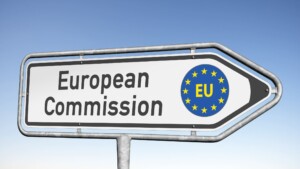 Forthcoming EU policy framework on bio-based, biodegradable and compostable plastics
Forthcoming EU policy framework on bio-based, biodegradable and compostable plastics
With the public consultation phase now closed, the forthcoming EU policy framework on bio-based, biodegradable and compostable plastics is nearing completion and is expected to be adopted in the second quarter of 2022. It is a crucial piece of legislation for the bioplastics industry, and European Bioplastics (EUBP) welcomes and fully supports the Commission’s initiative to promote bioplastics and to fully recognise their contributions to a sustainable plastics economy and the circular bioeconomy.
Our industry is looking forward to the development of EU policies which are fit for purpose and create a level playing field among companies operating on the EU market. In particular, these policies should recognise the key role played by bioplastics in reducing the use of fossil fuels and in delivering sustainable benefits under the European Green Deal. In addition, the framework should contribute to innovation, and enhancing investment certainty within the internal market.
From 18 January to 15 March 2022, the European Commission held a web-based public consultation to gather further insights for preparing the new policy framework and, in particular, to address more detailed questions on three policy areas: (1) the sustainability of the bio-based feedstock used to produce bio-based plastics; (2) the effective biodegradation of biodegradable and compostable plastics as well as their role in a circular economy; and (3) avoiding widespread consumer confusion of the nature and benefits of bioplastics.
EUBP’s contribution to the consultation
Representing the interests of around 70 member companies from the entire bioplastics value chain, EUBP has submitted its contribution to the consultation, stressing the paramount importance of a clear, fit for purpose policy framework that ensures reliability in decision making and a clear and trustworthy communication to consumers.
On the sustainability of alternative, bio-based feedstocks:
Driving the transition towards a low-carbon circular economy requires carbon to be regenerated using renewable resources. Therefore, the promotion of alternative feedstock concepts in EU legislation should not be limited to recycled feedstock. It must also include bio-based feedstock, as it can significantly contribute to the overarching goals of the EU Green Deal for climate neutrality by 2050 and for closing the carbon loop.
The Commission’s suggestion on setting sustainability criteria for bio-based feedstock used to produce bioplastics by transferring the sustainability criteria applying to biofuels to bio-based plastics is deemed appropriate, in principle. Renewable feedstock that is suited for biofuels is, in general, also suited for making bio-based plastics. However, unlike biofuels, where one more or less homogenous product is compared to another (fossil-based fuels), bio-based plastics and the products derived from them are at least as diverse as the products made from conventional plastics. Therefore, comparative calculations on required greenhouse gas emission savings must take into consideration that there is not always an adequate equivalent fossil-based polymer or product to which the bio-based polymer or product can be compared to. If comparisons with fossil-fuel derived plastics are to be fair, equal, and not anti-competitive, then sustainability criteria must be developed also for fossil-based feedstocks and processes.
On regulatory mechanisms to support the benefits of biodegradable plastics:
Regulatory mechanisms to support the benefits of biodegradable plastics should not impose limits or mere lists of certain applications that should be biodegradable. A supportive legislation should rather introduce criteria to assist in the search for new applications and that promote R&D and innovation and improve the management and/or treatment of biodegradable and compostable plastics.
On transparent communication with consumers:
Although all bioplastics can significantly contribute to global sustainability goals, they do so in different ways. Their wide range of properties highlights the need for more distinct and clear communication when referring to a specific material or product when engaging with consumers. Transparent communication is essential to avoid misunderstandings or greenwashing. Hence, the term ‘bioplastics’ without any further explanation should be avoided in B2C communication about a specific product. Instead, clear and substantiated claims – based on existing standards and certification schemes – should be made on the actual property (bio-based content) and designated waste management (mechanical recycling, organic recycling) option.
Read the full additional comment of EUBP on the public consultation on the forthcoming policy framework here.
The forthcoming policy framework is part of the larger EU Plastics Strategy (2018) and was announced in the European Green Deal (2019) and the New Circular Economy Action Plan (2020). As there is currently no EU law in place applying specifically to bio-based, biodegradable and compostable plastics, the European Commission aims to develop a comprehensive policy framework on the sourcing, labelling and use of bio-based plastics, as well as on the use of biodegradable and compostable plastics.